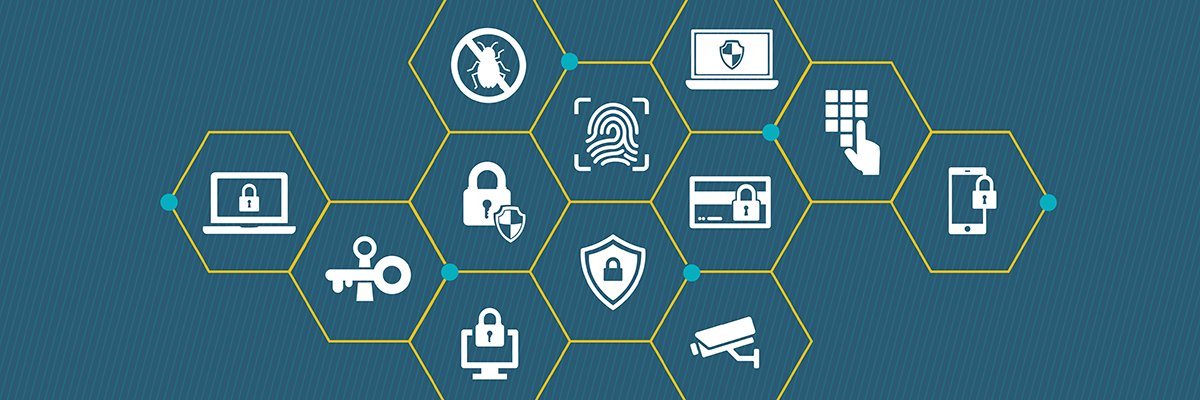Ensuring the security of your business’s files must be a top priority when it comes to keeping your information technology (IT) environment safe and secure. If your company’s data gets hacked, you not only risk losing all of the essential information, but you could also find yourself in legal hot water.
Utilizing a secure file transfer software is an excellent way to be proactive about your company’s security. Hackers are constantly updating their tactics to find new vulnerabilities, so using questionable software leaves you susceptible to attacks and opens you up to having your files compromised.
Security Threats To Your Company’s Files
The first step in safeguarding your files is knowing what security threats you need to be on the lookout for. Here are some of the top threats today:
Malware
The term malware refers to viruses and worms that are intentionally created to shut down a computer system. They can infiltrate a computer system through a successful phishing attempt or by installing a file through a spam email.
Phishing
This is a social engineering attack pretending to be from legitimate sources, such as banks or tech support providers, to gain access to your private information. Small businesses can employ cybersecurity measures to prevent this from happening.
Ransomware
Ransomware is a specific type of malware that locks your computer from operating until payment is made.
Data Breaches
A data breach occurs when a hacker gains access to a company’s private information without permission. Companies not only lose money to hackers, but they also risk losing trust from their customers if their confidential information gets released to the public.
Distributed Denial Of Service (DDoS) Attacks
DDoS attacks occur when hackers flood a business’s servers with more traffic than they can handle, causing them to shut down. They’re often used as distractions while other cybercriminals break into networks and steal information.
Universal Serial Bus (USB) Drive Thefts And Losses
USB drives are often left unattended and can be easily stolen or misplaced. This makes private information accessible to those who shouldn’t have it.
Email Attachments
Email attachments can contain viruses or malware that’ll shut down your computers if opened without permission.
What You Can Do To Keep Your Files Safe
There are simple ways to keep your business data and files safe against security threats. Some of them include:
Understand Your Business’s Security Needs
Know what security threats you need to be on the lookout for to better protect your files. It’s because each business is unique, and what works for one may not work for another.
For example, banks and other financial institutions have stricter security protocols due to sensitive information. However, this may not work for companies that don’t deal with customer data or money.
Have Strong Passwords
Password protection with two-factor authentication can help protect your accounts. Also, make sure to always use a different password for each of your accounts and update it regularly. Furthermore, you can also use a password manager to store all your passwords securely.
Use Antivirus And Anti-Malware Programs
Antivirus and anti-malware programs have been around for a long time. They’ve become increasingly more effective at protecting computers from malware. Some have been integral to keeping your files safe; however, with many antivirus and anti-malware programs out here, make sure to research the program that best fits your business needs.
Keep Software Up To Date
Avoid using outdated software that doesn’t have the latest updates because it leaves you open to attacks. The more up to date your software is, the less likely hackers are to find vulnerabilities to exploit.
Keeping your business’s computer systems up to date can also help you prevent cyber threats that may be unknown today, but could become problematic in the future.
Be Cautious With Links And Downloads
Don’t click on links within emails unless you’re positive they’re safe. Similarly, don’t download files from unknown sources as they may contain viruses or malware. Phishing scams heavily rely on people clicking on malicious links, so this is a threat to watch out for.
Also, with attachments or downloading files, use caution and err on the side of safety before opening them up.
Use Secure File Transfer Software
Many systems allow you to send important files securely, quickly, and easily over the Internet without worrying about spam or malware. You can also track when other people open the files you send them so you know exactly who’s looking at them.
Report Suspicious Email Activities
If you receive an email that seems like it’s trying to trick you into revealing sensitive information, report the email immediately. Most likely, this intuition is true, particularly if you haven’t availed of any service or product from the sender.
You may also use anti-spam filters to prevent spam emails from being sent directly to your inbox. Spam folders are also advisable to avoid even seeing these types of messages in the first place.
Copy Essential Data To A Removable Disk
Make sure to keep copies of your files if the originals become inaccessible due to cyber threats. You may use a removable disk or save them on a USB to ensure their completeness.
Back Up Data Daily
Related to the measure above, be sure that you back up your files and information daily so you can recover them if they’re ever damaged or lost. Remember that having a sound backup system in place can save you from data loss.
Have The Right Employee Policies And Procedures In Place
It’s important to share information among your employees to know what security protocols are in place. These include operating procedures on antivirus programs, keeping strong passwords, avoiding shared accounts, updating software before connecting to company computers, knowing which websites are safe to visit, enabling firewalls, and other security measures.
This step can also include policies and disciplinary measures for employees who violate security policies.
Ensure Physical Security
Computer systems must be kept in a secure area with limited access to unauthorized personnel. This simple tip can prevent them from being stolen or tampered with.
Hire IT Support
Hiring IT support can also help keep your files safe through regular scans and monitoring for viruses or malware on all of your business computers. They can also install software to protect your computers against specific threats.
Conclusion
With cyber threats becoming more widely known and used, businesses need to safeguard their files against them. Doing this can be challenging. However, by following the twelve tips mentioned in this article, you can keep your data safe from attacks and prevent cyber-related problems for your business.






